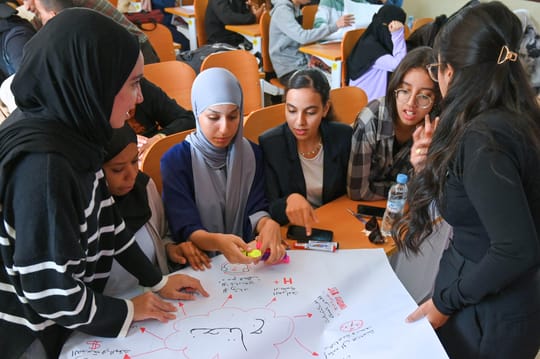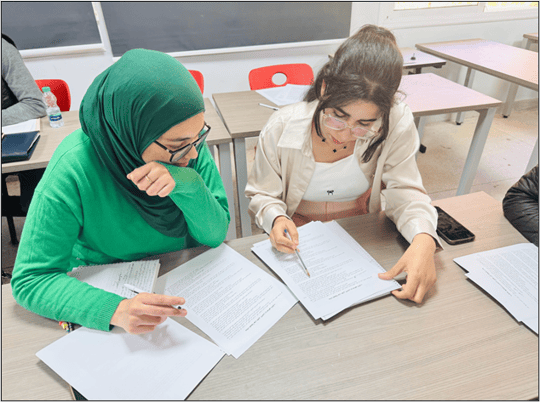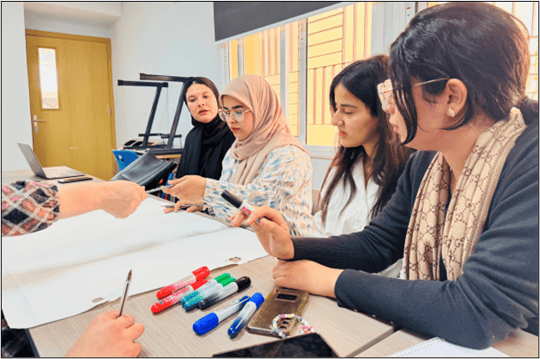Legal Aid Clinic Programs Mobilize University Populations

Partnerships with universities are invaluable for furthering sustainable development initiatives, as they tap into the valuable skills and knowledge from their respective resource networks and student bodies. The High Atlas Foundation´s (HAF) partnership with the National Endowment for Democracy and Mohammed Premier University and their project, Promoting Civil Society-University Engagement, has been instrumental in demonstrating the power of higher education students within impactful participatory development in Morocco. Through legal aid clinic programs, capable university students are equipped to realize community progress.
Between February and May, 2025, the Oujda legal aid clinic has provided nine university training sessions on topics including immigration law, human trafficking, and the ethics and practices of a successful legal clinic. The training curriculums are pulled from international and domestic law, ethics and philosophy, legal precedent, Moroccan geopolitical context, conceptions of human rights, and more. Participants – graduate students at both the master's and PhD levels – reported that their knowledge and competencies of these important issues increased following the training workshops. Thus, they were empowered to apply what they had learned not only to their educational and professional work but also to enhance the services they provide to their community. One beneficiary stated that “efforts in training law students and enhancing their skills…provide support and assistance to vulnerable and marginalized groups in society.”

Photos: University student training session, the Faculty of Law, Oujda, May 2025
An additional project undertaken with university student populations was community mapping workshops where students are able to take an active role in identifying areas of their educational institution and locality in need of improvement.This was an opportunity for participants to point out what opportunities, resources, and even infrastructure they desired to enhance their learning and livelihood. Through pairwise ranking, the workshop fostered dialogue, collaboration, and strengthened inter-student ties as the collective group narrowed down and prioritized key focus areas. The identified areas of need were as follows: “stronger communication with administration, modernized library resources, enhanced health services, more green and extracurricular spaces, and the establishment of a cafeteria.” Like the educational training sessions, students reported an increase in their knowledge of how to tackle community challenges as well as a better grasp of workshop objectives.

Photos: Community Mapping Workshop, the Faculty of Law, Oujda, May 2025
Overarchingly, the tangible skills and abilities garnered from both the training and community mapping workshops fortified entrepreneurial creativity and legal advocacy, both of which can be applied to students’ legal advisory fieldwork. In this way, HAFs university outreach programs inspire exponential sustainable progress: students benefit from the training and empowerment they receive but can then apply their newfound knowledge to grow the capacity of their own school, peers, locality, and beyond. Specifically, the legal clinic supervises students to consult on real cases. With the aid and oversight of professionals, students provide important services including document drafting and management, administrative support, and the facilitation of workshops that raise legal awareness and provide education on how to navigate judicial processes.
Confident and qualified university students are the future of legal advocacy and positive change-making. Allowing them to be an untapped resource by not mobilizing their passion and aptitude beyond the classroom would be a monumental waste. The Promoting Civil Society-University Engagement legal aid clinic projects are just one of many steps used to engage this critical population within sustainable development. It is vital to continue fostering HAF's participatory ties with educational institutions, faculty, and local communities to realize and address necessities.